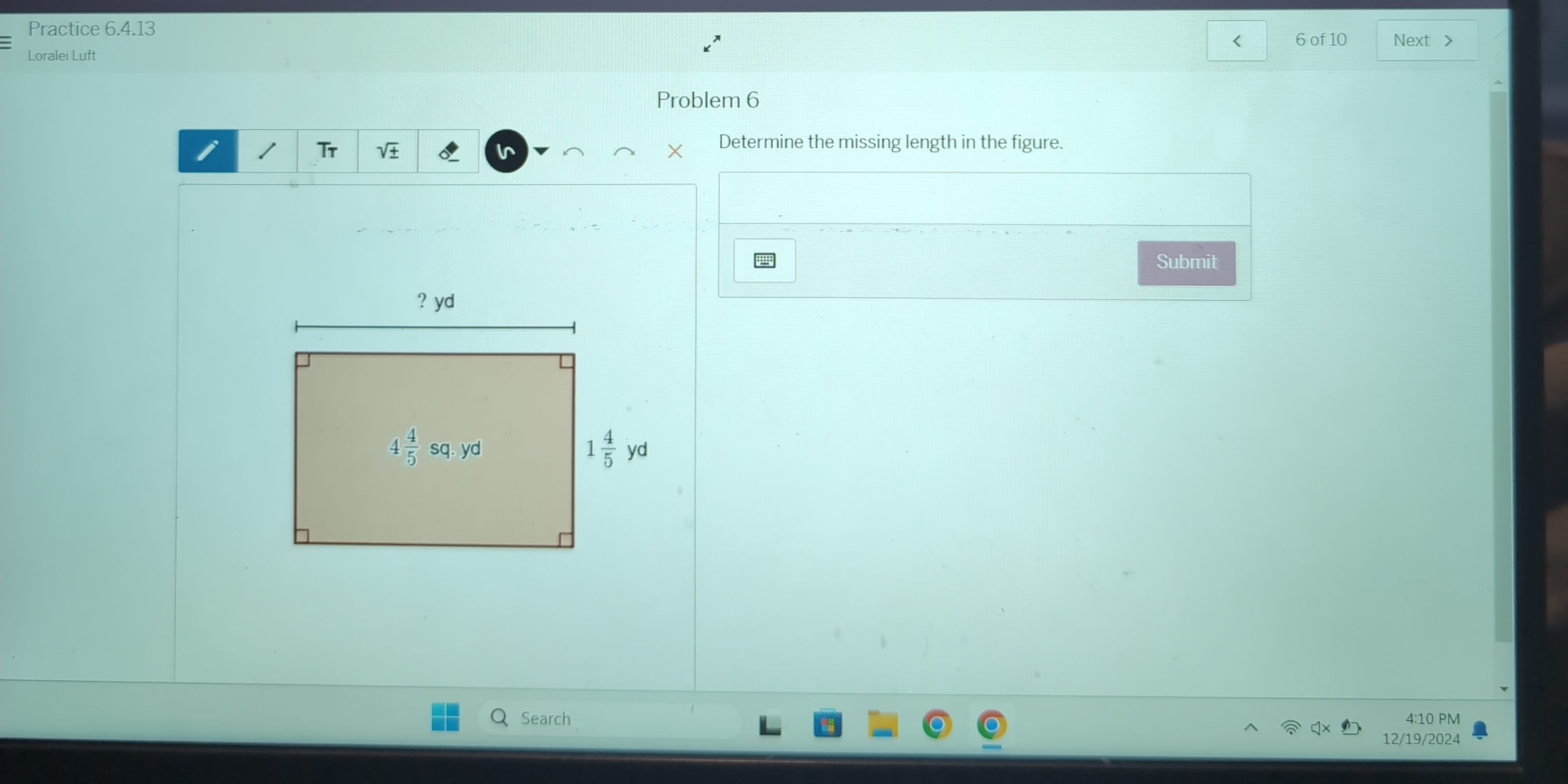Determine the missing length in the figure.

Understand the Problem
The question is asking for the missing length of one side of a rectangle, given its area and one known dimension. We will determine the missing side using the formula for the area of a rectangle, which is length × width.
Answer
The missing length is $3 \frac{21}{25}$ yards.
Answer for screen readers
The missing length is $3 \frac{21}{25}$ yards.
Steps to Solve
- Identify the known values
The area of the rectangle is given as $4 \frac{4}{5}$ square yards, and one of the dimensions is $1 \frac{1}{4}$ yards.
- Convert the mixed numbers to improper fractions
To simplify calculations, convert $4 \frac{4}{5}$ and $1 \frac{1}{4}$ to improper fractions:
For $4 \frac{4}{5}$: $$ 4 \frac{4}{5} = \frac{4 \times 5 + 4}{5} = \frac{20 + 4}{5} = \frac{24}{5} $$
For $1 \frac{1}{4}$: $$ 1 \frac{1}{4} = \frac{1 \times 4 + 1}{4} = \frac{4 + 1}{4} = \frac{5}{4} $$
- Apply the area formula of a rectangle
The area of a rectangle is given by the formula: $$ \text{Area} = \text{Length} \times \text{Width} $$
We need to find the missing side, which we’ll denote as $x$. Thus, we can set up the equation: $$ \frac{24}{5} = x \times \frac{5}{4} $$
- Solve for the missing dimension
To isolate $x$, divide both sides by $\frac{5}{4}$: $$ x = \frac{24}{5} \div \frac{5}{4} $$
This can be rewritten as: $$ x = \frac{24}{5} \times \frac{4}{5} $$
- Perform the multiplication
Multiply the fractions: $$ x = \frac{24 \times 4}{5 \times 5} = \frac{96}{25} $$
- Convert back to a mixed number if needed
To convert $\frac{96}{25}$ to a mixed number: $$ 96 \div 25 = 3 \text{ remainder } 21 $$
So, we have: $$ \frac{96}{25} = 3 \frac{21}{25} $$
The missing length is $3 \frac{21}{25}$ yards.
More Information
This problem involves using basic area formulas and conversions between mixed numbers and improper fractions. Understanding these concepts is key in geometry.
Tips
- Failing to convert mixed numbers correctly before performing calculations can lead to errors.
- Not isolating the missing variable correctly when rearranging the area formula.
AI-generated content may contain errors. Please verify critical information